Gardens are our sanctuaries. Hidden away from the bustle of life – and in all honesty – other people. We tend to put effort into screening and privacy to fashion our personal havens – somewhere to hide from personal contact outside our immediate family and friends.
Yet gardening is a hobby best pursued with the assistance of others – We gain advice from books and magazines, radio, TV, you tube channels, and online fora.
Despite the plethora and accessibility of gardening assistance there is a concern that there is one area that fewer of us are accessing – the kinship of a garden community or horticultural society.
Last year I joined two local horticultural societies. In each case the cost of joining was less than £6 for the year. I have gained so much from my membership. I cannot think of anything garden-related that has been better value, even packets of seed.
Here I share my experiences as a newbie member and summarise the wonder that is the British horticultural club or society.
Defying stereotypes – my experience as a newbie Horticultural Society member

Newsletters, talks and shows – all part of the offer from Gardening societies
Joining your local gardening club can put you in the same category as a trainspotter, WI member, or taking your wool and needles to a knitting circle. Whilst traditional British hobbies have had something of a revival in recent years, it still seems acceptable to have a joke at the kitsch, niche aspects of these groups.
My husband jokes with me each time it’s “hort soc” night, and many of my friends simply don’t understand it. It’s an alien world to them. Despite this I honestly believe that joining garden societies was the single best gardening task I did last year.
I am a member of two garden societies. One meets in a village hall a mile or two north of my house, the other a mile south. On the evening of my first meeting I almost didn’t go through those doors. Despite being a friendly person, confident around friends and work colleagues, I hesitated. When someone came up behind me I was more embarrassed to freeze than just to go in. So in I went.
I instantly met a group of people from diverse social backgrounds with a common love for plants and gardening. For an annual subscription costing no more than a cup of tea and a bun in my local cafe, I’ve attended half a dozen widely different but stimulating presentations from external speakers, taken part in my first shows and begun to make friends in my community that I’d never otherwise have met.
Everyone is so friendly. There are no cliques and I know I can sit next to anybody there and have a good chat about their garden, or the weather, or the scourge of slugs.
Being new does attract attention, especially when you’re young. A gardening contact of mine said that at 46 he was considered the youth wing of his local club, until a 30 year old turned up! But whatever your age, social background or horticultural interest, you’re sure to find a welcome at a local club.
Online communities Vs real ones

Online gardening communities are increasingly popular but are insular and lack the benefits of shared locality
It is intriguing how popular online communities are with people who are interested in gardening. Admittedly, I have found twitter horti-chat to be engaging and enriching.
Yet I get the sense that fewer of the people who engage online with strangers would think to engage in person at a gardening club, despite their obvious passion for the subject.
Barriers to involvement most often cited by non-members I have talked to is a lack of time. The advantage of social media is that you can dip in and out when and if you have a spare moment. Being part of a club with regular meetings requires diaries to be clear and babysitters booked.
There is also an awareness that once involved, some level of assistance may be sought to help with events. As a result many horticultural societies told me that most members are retirees.
Yet there are tremendous benefits to augmenting the online experience with real life ones. A twitter contact of mine summed it up well when he said “There is no substitute to talking about plants face to face and to swap cuttings and seedlings – you can’t do that online.”
Of course, when it comes to your local club, all the people live nearby and share the same challenges of soil, weather and pests as you. Online it can be disheartening to see tulips on parade long before yours are even in bud. When you talk to local people you realise you’ve only got a problem when the rest of your local club are well ahead of you!
There’ll always be someone there who’s grown something and failed and another who’s succeeded. People swap advice as freely as plants, cuttings and seeds.
Even more benefits of membership
A fantastic benefit to membership is that many clubs have secured discounts at local plant nurseries and garden centres – mine offer 10% off at the three nurseries nearby. I’ve more than recouped my membership fee through these savings and in return I choose to shop locally where I can.
Many societies run bulk buying schemes for seeds, sets and tuburs. Lambeth Horticultural Society have a wonderful trading hut where they sell well-priced garden and allotment essentials. Their plant bring and buy sales are also a popular date in the gardening calendar.
Some clubs have branched away from the traditional talk format and hold plant roadshows. The Finchley Horticultural Society recently held a Daffodil event, where members brought in their favourite daffs for identification and classification. They are taking baby steps towards a spring show but wanted horticultural learning to be a fun shared experience, not just a competitive one.
Of course most clubs do run local competitive shows. I have dipped my toe into showing at these and I can honestly say that whilst nerve-wracking, entering shows has improved my gardening no end. I’ll be writing a blog on show tips soon.
My local clubs also organise trips to gardens, some locally and others as longer trips away taking in a few garden tours. I’m yet to make one of these but to visit beautiful gardens with like-minded people, and to have all the stress of travel arrangements taken away, is appealing.
It’s also a great way to access gardens not usually open to the public and many NGS gardens open to groups but not the wider public.
Britain’s brilliant specialist Plant Societies
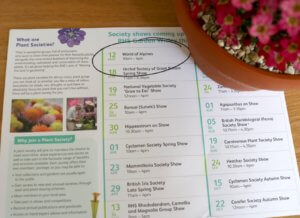
Plant societies often hold regional events – this leaflet summarises those to be held at RHS Wisley in 2018
Within the gardening community there are subsets of people – the alpine enthusiasts, those that love houseplants, those that like to propagate, the image conscious designers and the grow your own evangelists but there is of course much cross-pollination between these groups.
If you do have a particular interest in a type of plant – say cacti or alpines – there is probably a national specialist society out there where you can connect with people who share your passion and will share their knowledge.
In researching this article, I have been in contact with the Alpine Garden Society and the Hardy Plant Society to find out what their members think are the greatest benefits to membership. The words ‘passion’, ‘like-minded’, and ‘camaraderie’ cropped up time and again in my conversations with these groups and they are the biggest advertisements for membership.
Seed swaps and regular journals were also cited as reasons to join a plant society for the plant genre you love the most. It’s the best way to access new and unusual varieties and expand your growing knowledge.
Many of these societies augment the member’s experience with social media connections but if you are a seasoned grower, or an aspirational one, the regional shows of these national groups are the best places to meet fellow enthusiasts.
Nichola Walker of the Pint Sized Gardener Blog attended a show of the Cleveland Alpine Garden Society, having connected initially with members of the Society online. You can read about her experience here.
She’s taken away some seeds and taken the first tentative steps into alpine gardening. In her case, seeing beautiful plants raised by experts and meeting their growers face to face was a launch-pad that she may not have stepped on otherwise.
If you’re a gardener with a keen interest in perennials, The Hardy Plant Society has a fantastic advocate in Cathy Rollinson. If you want to find out more about it’s events and ethos, click here to hear an interview with her by the Sodshow Podcast.
Is there a rosy future for gardening societies?
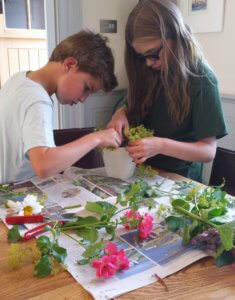 Events for children can help to broaden membership to a families
Events for children can help to broaden membership to a families
When I first started researching horticultural societies, the results of my internet searches made rather grim reading. I read about many clubs that were packing away their show benches, giving away their trophies and shutting their doors due to a lack of membership, or more accurately, due to a lack of volunteers willing to run them.
Anyone who’s been involved in a charity as a trustee or on a local club committee will know how much work goes into doing just the basics properly. Managing membership lists, booking halls and speakers, keeping up the books and publicising events all take time.
When I asked horticultural clubs what their biggest challenge was, many said that it was hard to broaden membership beyond retirees as younger people working longer hours and with busy family lives simply didn’t have the time to get involved.
The business of running the clubs came down therefore to older people and there is a genuine concern that unless younger committee members can be found, the future of such clubs will be uncertain.
Many clubs were making a big effort to appeal to younger members, citing children’s classes at their local show, working with schools on garden projects and using social media to promote events and connect with local people in different ways.
The Royal Horticultural Society has a department whose sole aim is to assist clubs and so-called affiliated societies. They provide opportunities to share best practice and can offer practical advice as well as the chance to visit their gardens at group discounts.
The good news from the RHS is that whilst some clubs are closing, mainly due to falling memberships particularly in rural areas, others are opening. The roll call of affiliated societies has remained constant over the last 10 years, with a surge in new clubs, particularly in urban areas. The RHS website page here describes how they support the almost 3000 gardening clubs and societies across the country.
Still need persuading?
In a nutshell – the benefits of garden societies and usually for less than £10 a year.
- Meeting people with a shared passion for gardening in your area or for growing certain types of plant.
- Presentations from external speakers on a diverse range of garden related topics
- Trips to gardens, including those not normally open to the public
- Horticultural shows and advice roadshows
- Discounts at local garden centres and nurseries and access to group buy discounts
- Seed, cutting and plant swaps
- Journals and newsletters
Get out there and join your local group – if you love gardening, you’re unlikely to regret it.
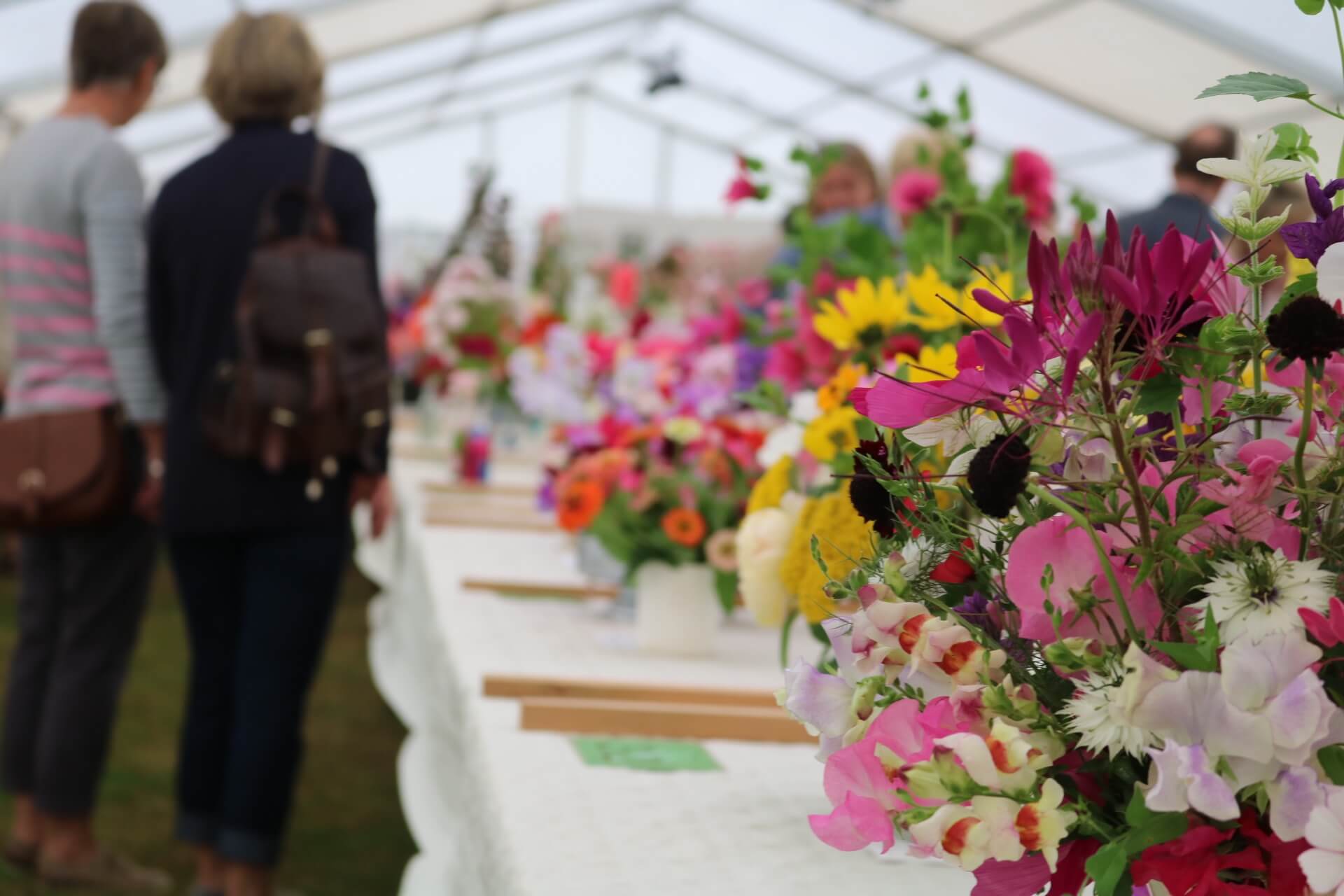

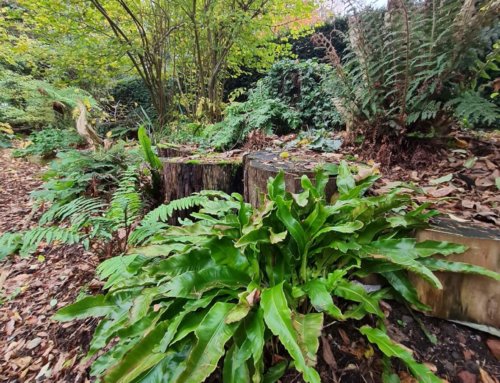
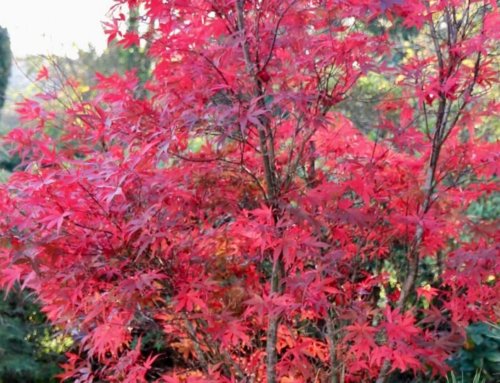
This was such a comprehensive guide, thank you for sharing. Many people may not consider joining online gardening communities but this can be a great option for those who don’t have many gardening societies in their area or simply find it hard to get to regular meet ups. Great blog!
Thanks for your lovely comments Francesca. I love going to the meetings when I can but yes, connecting online is so rewarding. I feel like I’ve made some great connections online and learned so much.